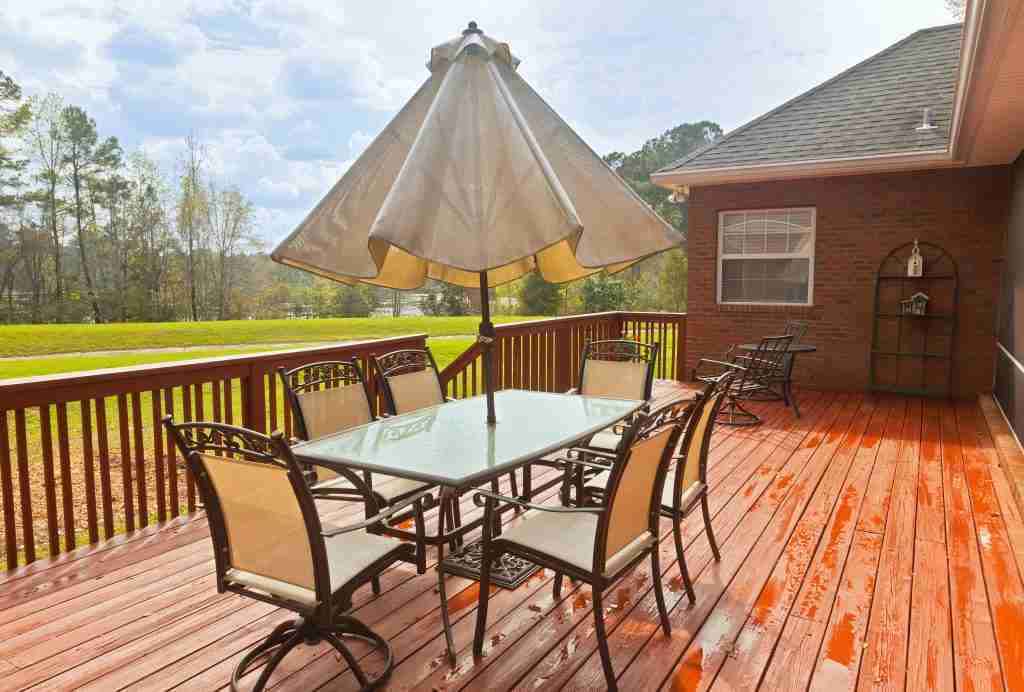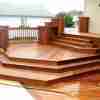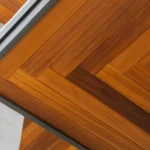Massaranduba Wood
Why Massaranduba Wood Is The #1 Best Choice For Fences, Decks And Pergolas In The U.S. Virgin Islands
Massaranduba wood is a type of exotic Brazilian wood that’s one of the most durable, robust and easily sustainable natural materials in the U.S. Virgin Islands and other places in the market. It grows in a number of South American areas. It’s dark red, rich coloring allows it to feel comfortable and warm. It’s considered one of the hardest and most beautiful woods worldwide.
One astounding fact regarding Massaranduba wood is the way in which it performs under bending strength (heavy load) tests. These tests show Massaranduba wood, as a decking material, is stronger than Ipe decking and two times as strong as California Redwood. And, while this stat is impressive, the true driving force behind Massaranduba wood’s popularity is its beautiful velvet red appearance.
Why Massaranduba Wood is a Good Choice for Many Wood Projects
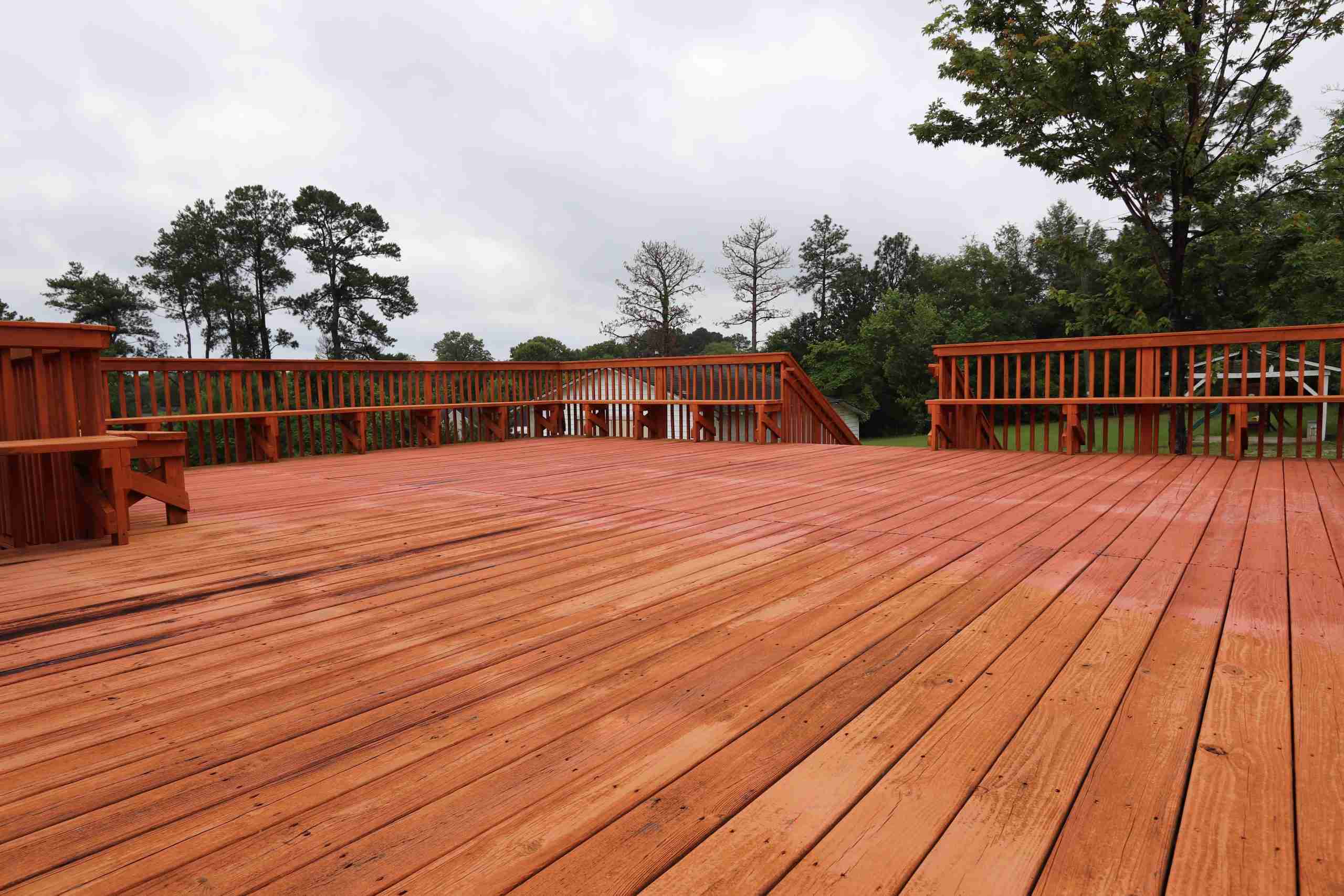
This hardwood is incredibly versatile. Because of its durability, it’s often preferred for many projects like:
- Fences
- Decks
- Pergolas
- And more
But, its strength, beauty and low need for maintenance is what really makes it a top choice for residential projects in the U.S. Virgin Islands.
Other reasons to choose Massaranduba wood are:
1. All Natural
Massaranduba wood is 100% natural, unlike composite decking which often combines wood pulp, a reclaimed lumber filled with toxic chemicals that can harm animal and plant life and plastic, a non-recyclable material known for polluting the planet. Massaranduba wood is perfect for biodegradability, repurposing and doesn’t create any by-products that could be harmful to the environment. No plastics or chemicals whatsoever in this wood — just 100% real wood.
2. Longevity
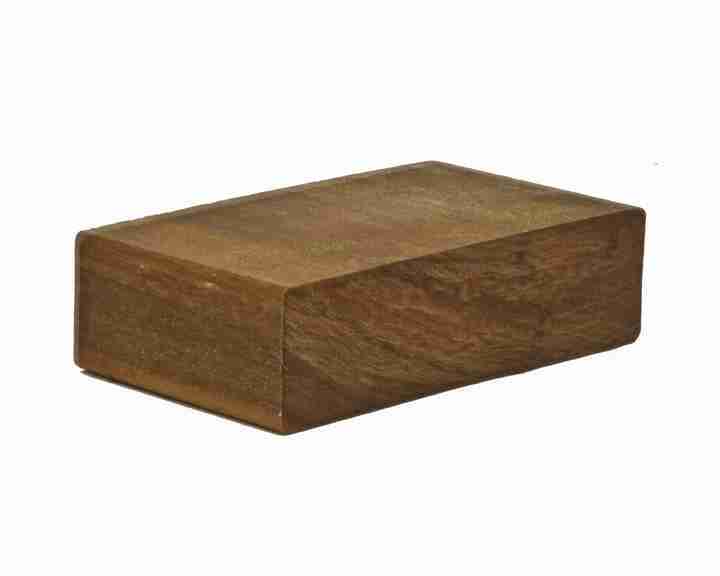 Massaranduba wood is renowned because of its ability to last a very long time (decades), even in very extreme weather conditions. Hardness and density plays a significant role in this. It’s natural resistance to decay/rot and water penetration also contributes to its longevity. These woods evolved from the forests which experience up to 400 inches of rain every year. This wood is naturally resistant to mold, decay, rot and water penetration due to its evolutionary response to this heavy rainfall.
Massaranduba wood is renowned because of its ability to last a very long time (decades), even in very extreme weather conditions. Hardness and density plays a significant role in this. It’s natural resistance to decay/rot and water penetration also contributes to its longevity. These woods evolved from the forests which experience up to 400 inches of rain every year. This wood is naturally resistant to mold, decay, rot and water penetration due to its evolutionary response to this heavy rainfall.
3. Fire Resistance
Fires are a big determining factor that drives construction material decision-making, including in large commercial projects in urban places. Massaranduba wood is extremely resistant to flame spread and usually receives a high B rating in Flame Spread rating testing. This typically means prolonged flame exposure might cause damage, but there’s minimal flame spread.
4. Insect Resistance
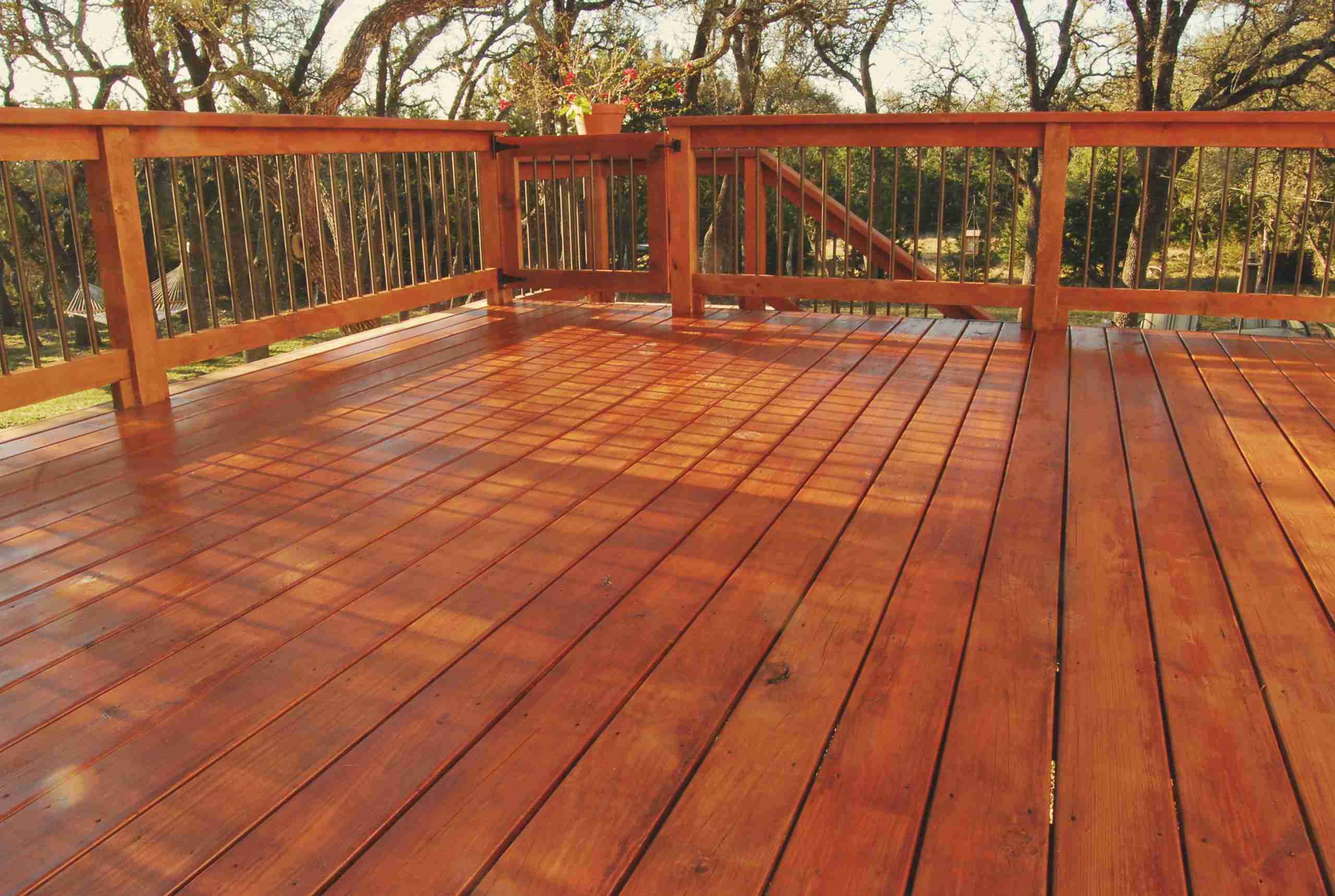
Massaranduba wood is naturally resistant to insects. Domestic timber is chemically treated to deter wood boring insects. But, this wood evolved in forests that had insects that were far more wood-boring proficient than their counterparts in North America. In their natural habitat, very few insects can infiltrate their tough wood fibers. And, the domestic insects of the U.S. don’t compare.
You’ll want to reapply oil finishing and ultraviolet inhibitors to maintain Massaranduba wood’s stunning beautiful color. Because it’s chemical-free, you can use this wood adjacent to water without contaminating the water. Because of its ideal features, the wood is highly recommended for many exterior wood projects.


